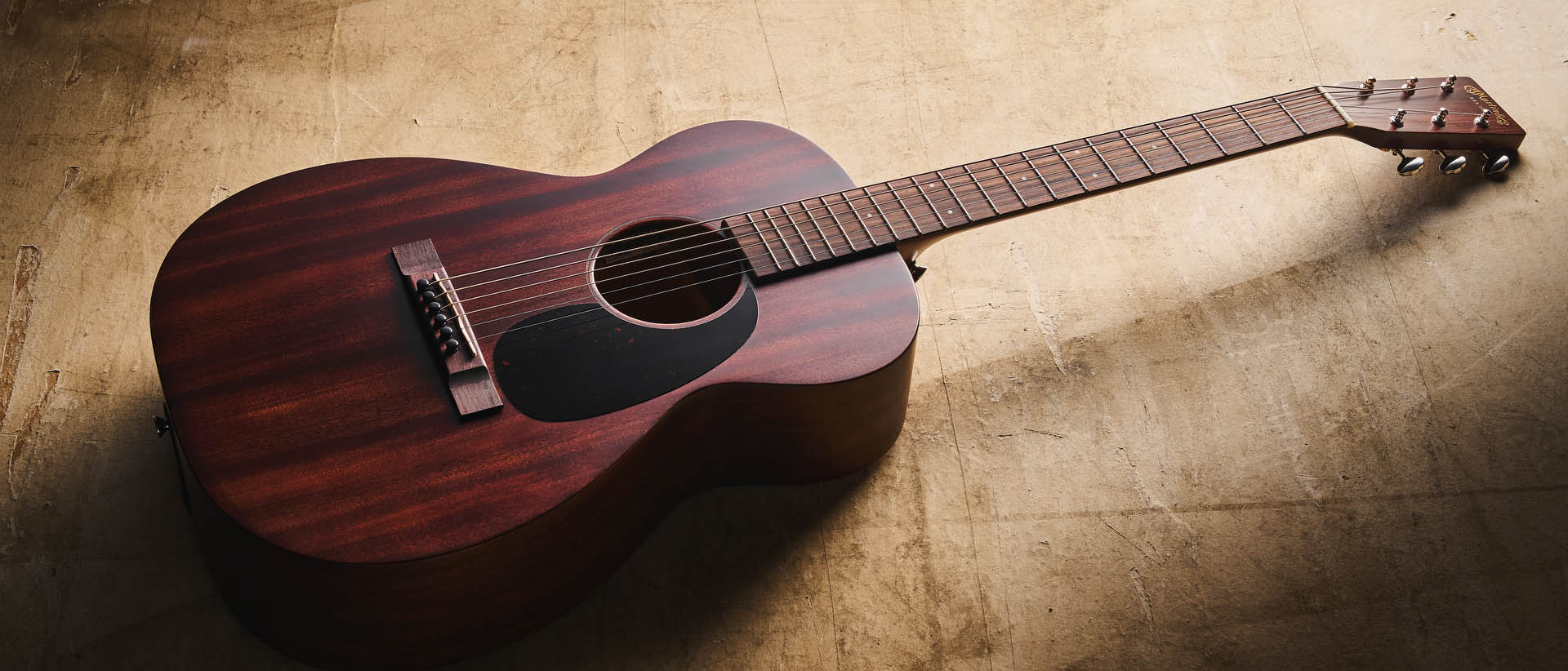Tigers Jaw’s Ben Walsh: “This band has always had a really great sense of community around it”
The new and improved Tigers Jaw go especially big and bold on album #6

Note: this article is also featured in Australian Guitar #142, which is out now wherever great magazines are sold! Click here to read more about what’s in this jam-packed issue!
It might’ve taken a hot minute, but the Pennsylvanian pop-punks in Tigers Jaw have finally found their ultimate form. After hashing out their first four (critically adored) albums as a quintet, 2017 came with a soft reboot in Spin, on which duties were shared between guitarist Ben Walsh and keyboardist Bri Collins. For all intents and purposes, the formula worked: the record is palpably dynamic both in performance and production, and it was an unequivocal hit between longtime devouts and casual listeners alike. But for Walsh and Collins, something wasn’t quite right. It didn’t feel real enough.
For touring purposes, the pair recruited Teddy Roberts on drums, and Colin Gorman first on rhythm guitar and then on bass. Not only did the four gel amiably as a live unit, but they quickly unearthed an incredibly lucrative creative dynamic. Like Scott Morrison booking holidays during bushfire season, new song ideas popped up at ridiculous speeds. Before long, the new and improved Tigers Jaw had more than enough material for another punchy and emotive set of pit-ready bangers.
Embracing the incandescent spirit of Tigers Jaw live in concert, I Won’t Care How You Remember Me is as loud as it is luminous; older fans will appreciate the classic, punky grit of the (mostly) analogue recording, while newer fans fall head over heels for the tighter-than-ever hooks and singalong-tailored choruses. Australian Guitar jumped on the line with Walsh to dig a little deeper into the backstory behind this powerful new pop-punk compendium.
So this is the first record you’ve done with Colin Gorman on bass and rhythm guitars. Was there anything unique he added to the creative dynamic?
For the first couple of years Colin played for us, he was only playing guitar. We were getting ready to play at a festival in England in 2019, and he just turned around and said, “I think I want to play bass in this band instead, is that cool?” And I was like, “Dude, absolutely!” As long as I’ve known Colin, he’s first and foremost been a guitar player – if there’s a guitar around, it’s in his hands and he’s playing it. So I was kind of surprised by what he said, but he really rose to the occasion. I think he saw it as a challenge, like an opportunity to branch out and think about the music in a different way.
We approached writing and recording as a four‑piece – on the record there’s both sides of the guitar, but when we were jamming, Colin was playing bass. So there was a lot more space than we’d ever had before, and by running through the songs over and over again, changing little things and getting to know each other’s musical personalities, we all figured out together what our roles were for each song, and we were able to determine the appropriate amount of space that we’d each take up in that song. It’s not always a big, shreddy guitar moment, but when there is one, it stands out that much more because everybody’s chiming in at the point that is most impactful.
I remember when Spin came out, you and Bri were both super adamant that recording as a two-piece was the best thing you’d done. What drew you back to the idea of doing a record as fully fleshed-out unit?
Well y’know, our band has been through quite a few changes over the years. At the time we were writing and recording Spin, it sort of felt like a state of flux for us. It felt like if the record was going to happen, we had to bring it back to how the band started, which was two people writing and recording everything together.
All the latest guitar news, interviews, lessons, reviews, deals and more, direct to your inbox!
But all that while, even before we started on the Spin process, we had been touring a whole bunch with Teddy and Colin. We played a million shows together and really got to know each other – in a musical sense and a personal sense. And y’know, something really cool about this band is that there’s always been a really great sense of community around it, which has led us to a lot of really great, genuine, creative people, who we tend to see ourselves in. Colin and Teddy exemplified that in a huge way, so when [Bri and I] started talking about the next record, it was a no-brainer to bring them in on it.
This record feels almost surprisingly raw. The way everything gels together, you’ve got these really dense and dynamic soundscapes, but everything sounds defiantly analogue. Was that a byproduct of the chemistry you had as a full unit?
I think so. It was really intentional. Spin was just super dense – if there was a guitar part, it was an electric guitar lead, another guitar with a Big Muff on it underneath that, and then a layer of acoustic guitar doubled underneath that. That approach was perfect for that record, but it wouldn’t have worked at all for this one. We found that if we gave everything a lot of space, it hits harder; it’s more impactful, and you can hear the human element in it.
So for most of the record, even when there’s a guitar lead, it’s not two panned rhythm tracks and a guitar lead in the centre, it’s how we would be perform it live with one guitar holding down the rhythm and one guitar holding down the lead. We took a very ‘less is more’ sort of approach. We had the final mix in mind, too, so we were thinking a lot about how we wanted everything to be impactful and give everything plenty of space, so that wherever one instrument sits in the mix, it’s not competing with anything else for attention. You can hear the humanness and you can hear everybody’s musical personalities represented equally in the songs.
I love how many guitar solos you’ve crammed into this record. Were you excited to really embrace your inner rockstar on this one?
Well on the last record, I had to think in terms of what the drums are going to do, what the bass was going to do, what the keys were going to do… But this time I had my trust set in some of my favourite musicians in the world, so I didn’t have anything to worry about aside from my guitars and vocals. So that allowed me to take a step back from the other stuff and just make sure I was really putting the attention where I needed to the most – which was in writing riffs and writing guitar solos. I didn’t want it to be super self-indulgent, but y’know, there were a lot of parts that were really, really fun to write, and just came from going, “This part is begging for a guitar solo to just take it over the top.”
Credit where credit is due, though: the song “Lemon Mouth” started with Bri and Colin. They live really close to one another, so they were getting together and working on early melodies and chord progression ideas. Colin and I have very different playing styles, and that song came straight from his wheelhouse. He developed the early version of that song with Bri, and when it came time to keep working on it as a band, it just felt right for he and I to swap out instruments. So that sort of shreddy, bassy sounding guitar solo: that’s all Colin.

Ellie Robinson is an Australian writer, editor and dog enthusiast with a keen ear for pop-rock and a keen tongue for actual Pop Rocks. Her bylines include music rag staples like NME, BLUNT, Mixdown and, of course, Australian Guitar (where she also serves as Editor-at-Large), but also less expected fare like TV Soap and Snowboarding Australia. Her go-to guitar is a Fender Player Tele, which, controversially, she only picked up after she'd joined the team at Australian Guitar. Before then, Ellie was a keyboardist – thankfully, the AG crew helped her see the light…

